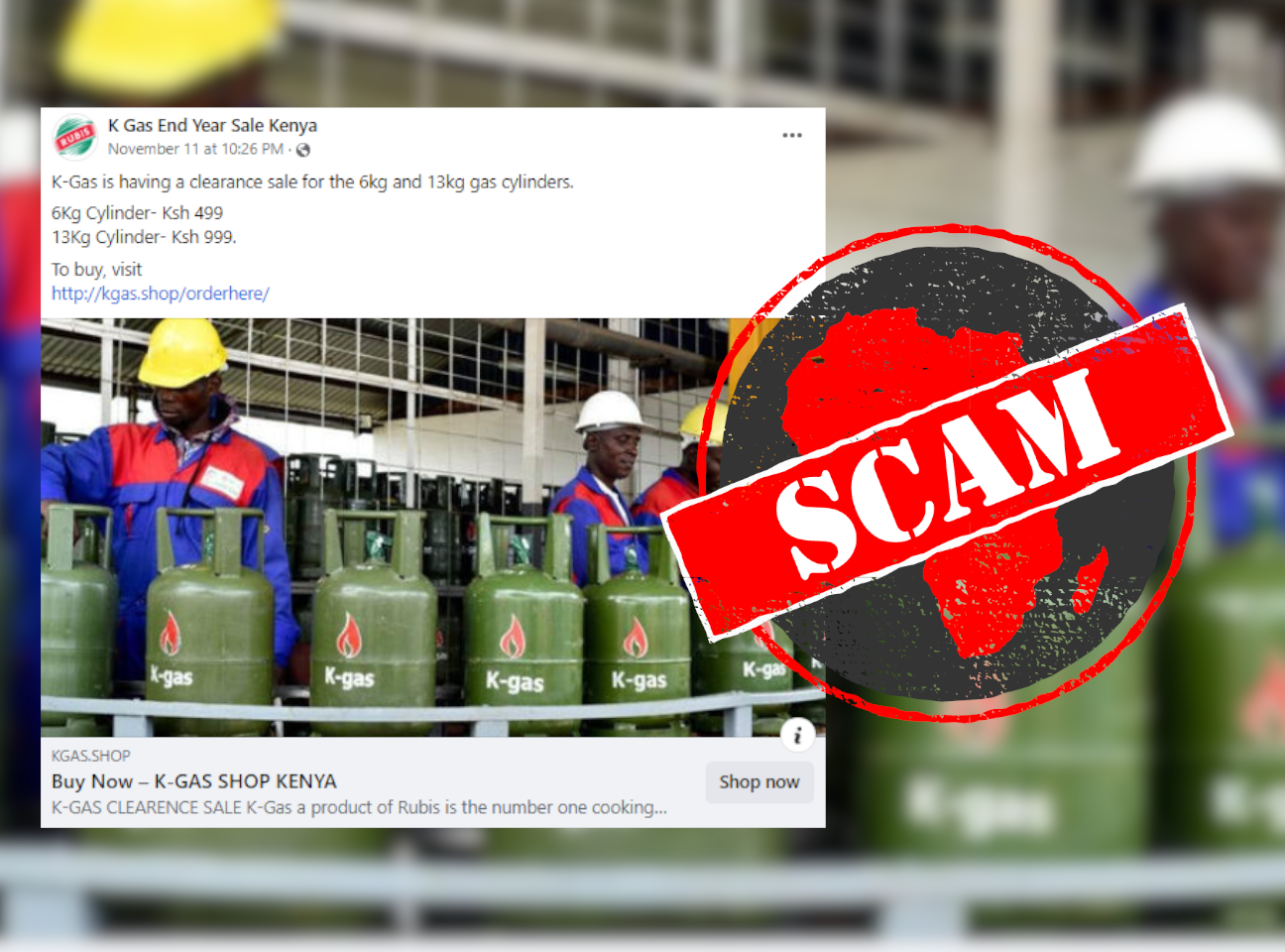The Facebook page “K Gas End Year Sale Kenya” is advertising cooking gas cylinders at surprisingly low prices.
In what it calls a “clearance sale”, the page offers 6 kilogram cylinders at KSh499 each, and 13 kilogram cylinders at KSh999 apiece. When new, the 6 kilogram cylinder usually sells for at least KSh4,000 and the 13 kilogram at over KSh7,500.
K-gas cylinders are products of RUBiS Energy Kenya.
Are these offers the real deal? Or are they a scam? We checked.

Link to poorly designed page demanding M-Pesa payment
The page is not verified. And its transparency section shows it was created as “Amal Collections” on 10 November 2021, changing its name to “K Gas End Year Sale Kenya” the next day.
Some posts on the page have been copied from the “RUBiS Energy Kenya” Facebook page, which is verified.
Suspiciously, the page doesn’t link to the RUBiS Energy Kenya website – rubiskenya.com. Instead, it links to an amateur-looking site with the URL kgaskenya.shop.
The site copies content from the official website, and lacks important information such as location, contacts and an “about” section.
None of the discounts on the dodgy page can be found on the official RUBiS site. Even more suspiciously, the fake page asks people to pay for their cut-price gas cylinders using MPesa mobile money transfer. This is a common sign of a scam, and the official site doesn’t do this.
On 1 October 2021 RUBiS posted a screenshot of an identical offer – with the same wording and photo – on its verified Facebook page. The screenshot is stamped “FAKE”.
“FAKE PAGE ALERT!!” the post reads.
“Kindly treat the attached as a scam. RUBiS is NOT selling outright cylinders at the moment. Any communication regarding RUBiS is communicated on our official social media channels and website. Stay vigilant and help us in reporting the page as a scam.”
The Facebook page “K Gas End Year Sale Kenya” is also a scam.
Republish our content for free
For publishers: what to do if your post is rated false
A fact-checker has rated your Facebook or Instagram post as “false”, “altered”, “partly false” or “missing context”. This could have serious consequences. What do you do?
Click on our guide for the steps you should follow.
Publishers guideAfrica Check teams up with Facebook
Africa Check is a partner in Meta's third-party fact-checking programme to help stop the spread of false information on social media.
The content we rate as “false” will be downgraded on Facebook and Instagram. This means fewer people will see it.
You can also help identify false information on Facebook. This guide explains how.




Add new comment